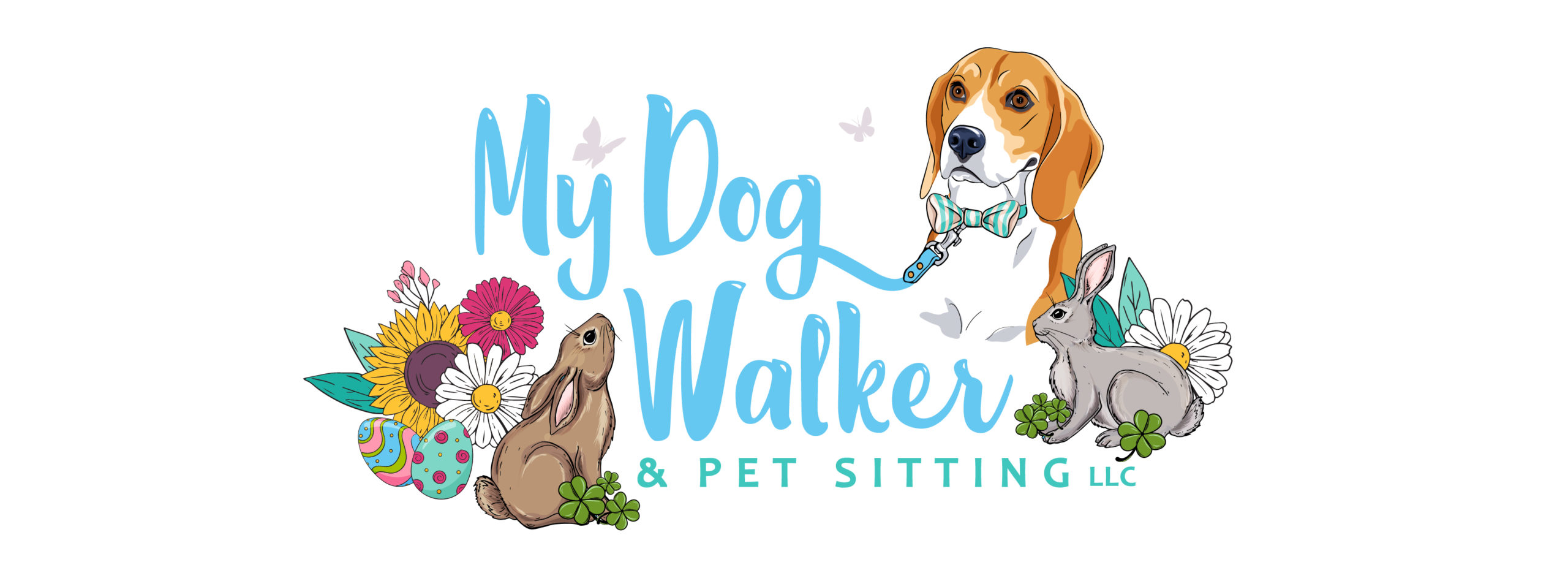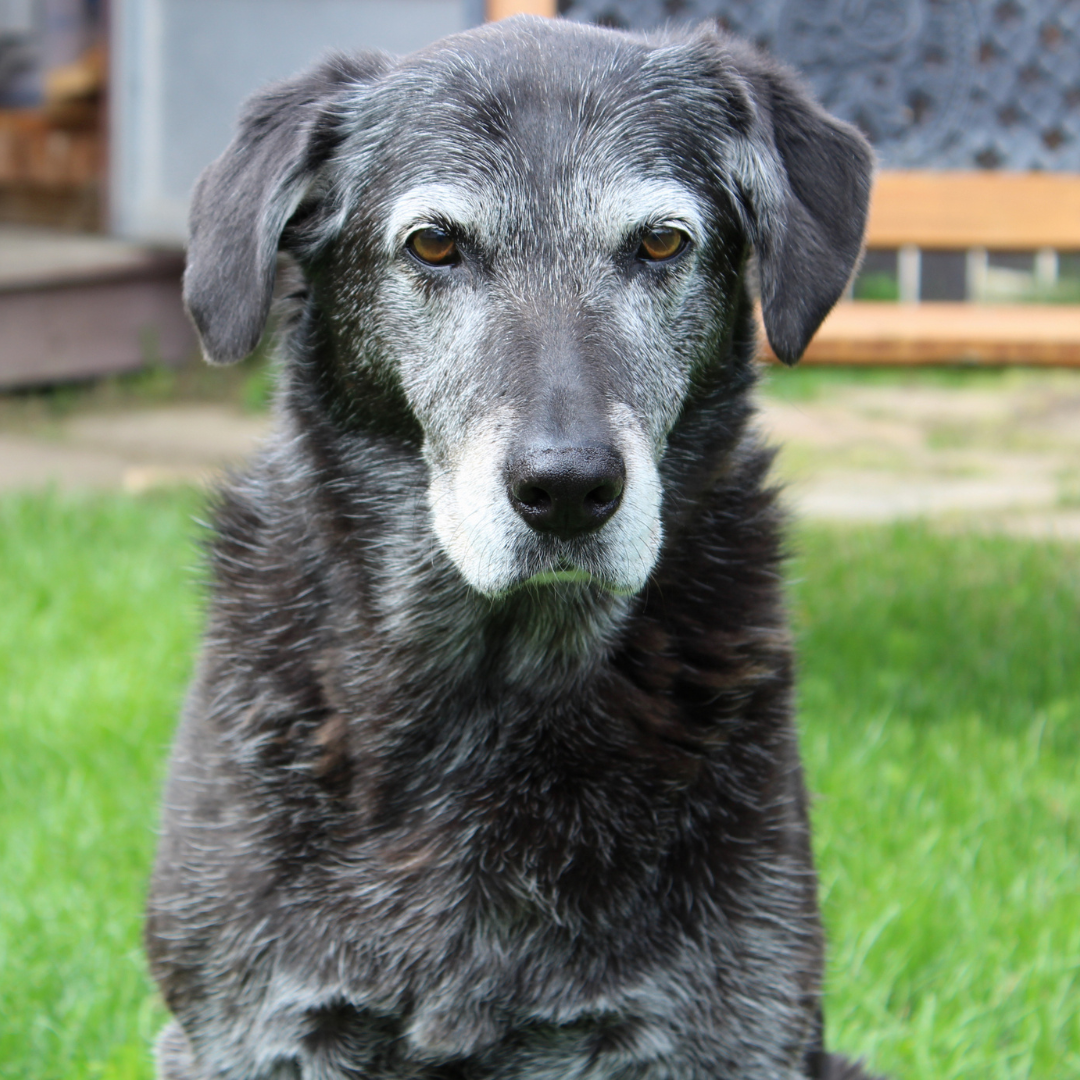
Taking An In-Depth Look Into The Health Condition Known As Canine Cognitive Dysfunction, The Symptoms, And How To Manage This Condition In Your Dog
As our furry friends grow older, they can start to show signs of aging, much like humans. One of the conditions that some senior dogs may develop is Canine Cognitive Dysfunction (CCD), often referred to as “doggy dementia.” It’s a progressive neurodegenerative disorder that affects a dog’s brain function, similar to Alzheimer’s disease in humans. Understanding what CCD is and how to recognize its signs can help ensure your dog’s golden years are as comfortable and fulfilling as possible.
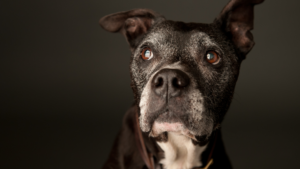
What Causes Canine Cognitive Dysfunction?
CCD occurs when changes in the brain due to aging affect a dog’s cognitive abilities. Over time, there may be a buildup of abnormal proteins, oxidative damage, or decreased blood flow in the brain, leading to a decline in memory, learning, and comprehension. These brain changes can result in confusion, disorientation, and altered behaviors in your dog.
Signs and Symptoms Of CCD
The symptoms of CCD can be subtle at first, but they generally become more noticeable as the condition progresses. Some common signs include:
1. Disorientation:
Your dog may seem lost in familiar surroundings or get stuck in corners, unable to figure out how to get out.

2. Changes In Sleep Patterns:
Dogs with CCD often experience disturbed sleep, pacing or vocalizing at night, and sleeping more during the day.
3. House-Training Issues:
A previously house-trained dog may start having accidents indoors or forget how to signal when they need to go outside.
4. Altered Interactions:
Your dog may become less interested in spending time with you, avoiding interactions, or in some cases, becoming more clingy and anxious.

5. Decreased Activity:
Some dogs with CCD may lose interest in toys, playtime, or physical activity.
6. Repetitive Behaviors:
Dogs may start pacing in circles, barking more frequently, or exhibiting other repetitive actions.
7. Changes In Learning and Memory:
Dogs may forget simple commands they once knew or seem confused during daily routines.
How Is CCD Diagnosed?
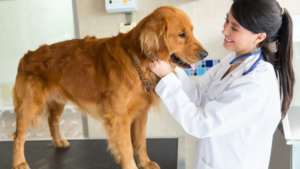
If you suspect your dog may have CCD, it’s important to consult your veterinarian. Diagnosis typically involves ruling out other potential causes for behavioral changes, such as arthritis, vision or hearing loss, or other medical conditions. Your vet may also conduct cognitive tests and ask about your dog’s behavior at home to determine whether they are showing signs of CCD.
Managing Canine Cognitive Dysfunction
While there is currently no cure for CCD, several strategies can help manage the condition and improve your dog’s quality of life:

1. Diet and Supplements:
Some prescription diets are formulated to support brain health in senior dogs. These diets often contain antioxidants, omega-3 fatty acids, and other nutrients that may help slow cognitive decline. Supplements like SAMe (S-Adenosyl methionine) and coconut oil may also support brain function. Additionally, always consult with your veterinarian first before giving your dog any forms of supplements.
2. Environmental Enrichment:
Keeping your dog’s mind active with puzzle toys, interactive games, and regular training sessions can help maintain cognitive function. Routine and structure can also reduce confusion and anxiety.
3. Medications:
Your vet may prescribe medications to help alleviate some of the symptoms associated with CCD, such as anxiety or disrupted sleep patterns.
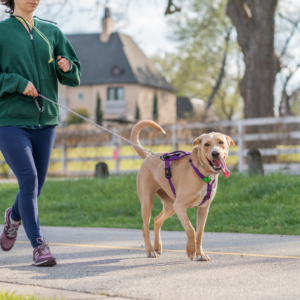
4. Exercise:
Regular physical exercise can promote blood flow to the brain and reduce anxiety, which may help manage CCD symptoms. Gentle walks and low-impact activities can benefit your senior dog.
5. Routine and Consistency:
Dogs with CCD often benefit from a consistent daily routine, including regular feeding times, bathroom breaks, and play sessions. Keeping their environment familiar and free of obstacles can reduce disorientation.
Supporting Your Senior Dog
Living with a dog who has CCD can be challenging, but with proper care and understanding, you can help your dog navigate their senior years more comfortably. Pay attention to any behavioral changes and work closely with your veterinarian to develop a management plan that suits your dog’s specific needs.
As dogs age, they need our patience and support more than ever. By staying informed about conditions like Canine Cognitive Dysfunction, you can give your loyal companion the love and care they deserve in their senior years. For additional information about Canine Cognitive Dysfunction, click here.

Hire A Professional Pet Sitter & Dog Walker Today!
If you or someone you know is looking for a pet sitter or dog walker, then look no further than My Dog Walker & Pet Sitting. We are fully insured & bonded and have over 10 years of experience working with animals. Click here to check out our wide variety of pet sitting services including in-home pet sitting and routine dog walking.
We currently service the Medford, Medford Lakes, Shamong, and Tabernacle, NJ areas. To become a client, click here or give us a call at 856-217-2781. Be sure to check us out on Facebook and Instagram too! We post new content regularly, so be sure to follow us so you don’t miss out on adorable pictures of our pets.
